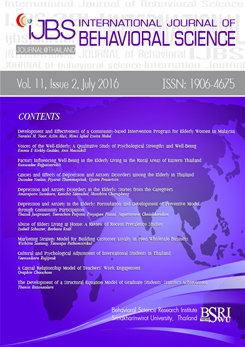A Causal Relationship Model of Teachers’ Work Engagement
Main Article Content
Abstract
The purpose of this study was to examine the antecedents and consequences of work engagement model for Thai teachers. The model posits that personal resources, job resources, and job demand influence work engagement, which in turn predict work behavior (i.e., teacher role behavior and organizational citizenship behavior). The sample consisted of 417 elementary teachers in Bangkok Metropolis administration. Self- report inventories, with 5 point rating scales ranging from absolutely true to absolutely not true, were designed to measure the antecedents and consequences of work engagement, and were administered to collect data. The self-report inventories were acceptable in terms of discrimination power, validity, and reliability. The structural equation modeling (SEM) technique was employed to test the causal relationship model of work engagement. Results using SEM confirmed that the alternative model fitted the data. Specifically, personal resources (i.e., psychological immunity and intrinsic motivation) and job resources (i.e., justice climate, teacher-student relationships, support from coworkers, and supports from supervisors) positively affected work engagement. Work engagement had an impact on teacher role behavior and organizational citizenship behavior. In other words, work engagement mediated the relationship between personal – job resources and work behavior. In addition, job demands negatively affected teacher’s role behavior and organizational citizenship behavior. The model could account for 70.9 percent of variance in teacher’s role behavior and 67.2 percent of variance in organizational citizenship behavior. Implications for theory and practices are discussed.
Keywords: work engagement, personal resources, job resources, job demands, work behavior


